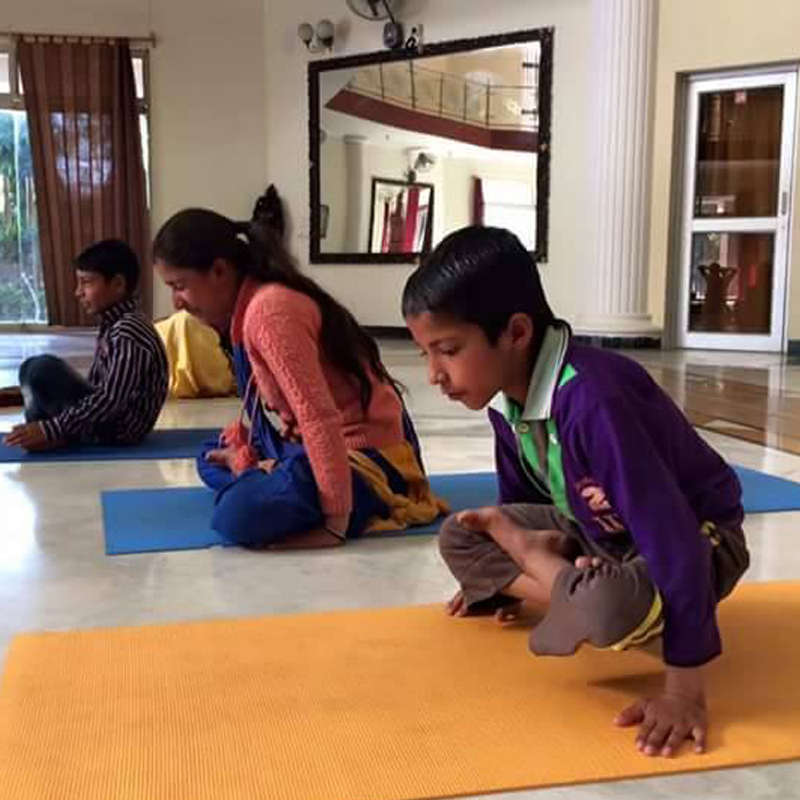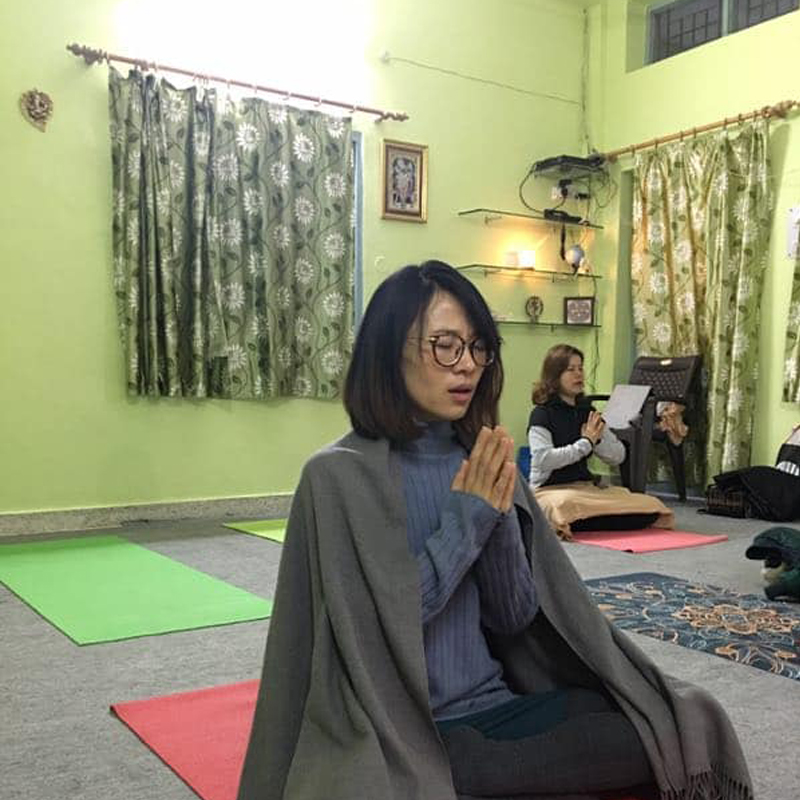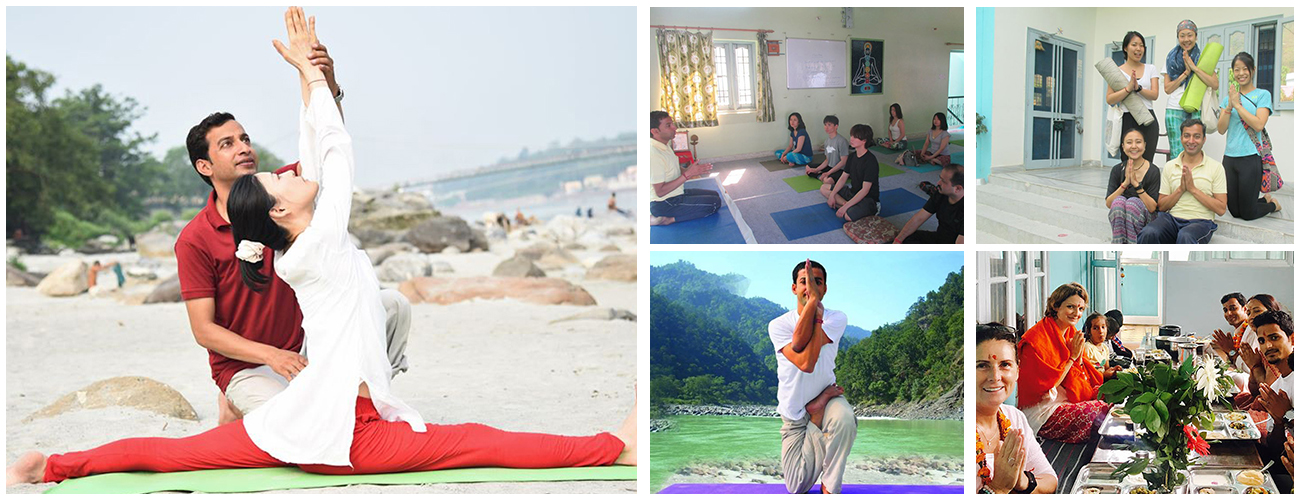
200 Hour Yoga Teacher Training In Rishikesh (Intermediate & Beginner Level)
Overview - 200 Hour Yoga Teacher Training In Rishikesh (Intermediate & Beginner Level)
This 200 Hour Yoga Teacher Training In Rishikesh (Intermediate & Beginner Level) can have profound impact on your life in many ways you might never have imagined. A quality yoga teacher training course under the guidance of experienced yoga masters in India will boost your overall health conditions; greatly influence your approach towards life and deepening your understanding of roots of yoga and its various related practices. Yoga is not something we can separate into various categories or number of hours training; yes of course for the learning point of we can group yoga into various levels/hours. Ultimately yoga is one and it works in all aspect of our lives and with this course, our aim is to provide you pure authentic yoga and give you taste of the sweetness of yoga already present in you.
Have any question?
No money will be charged, feel free to enquire.
Images Gallery
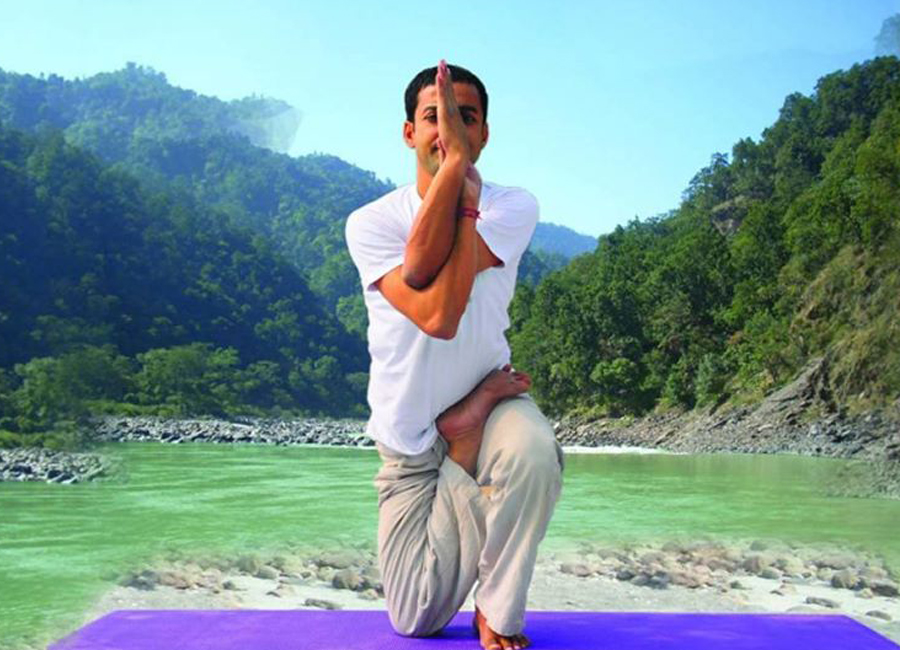

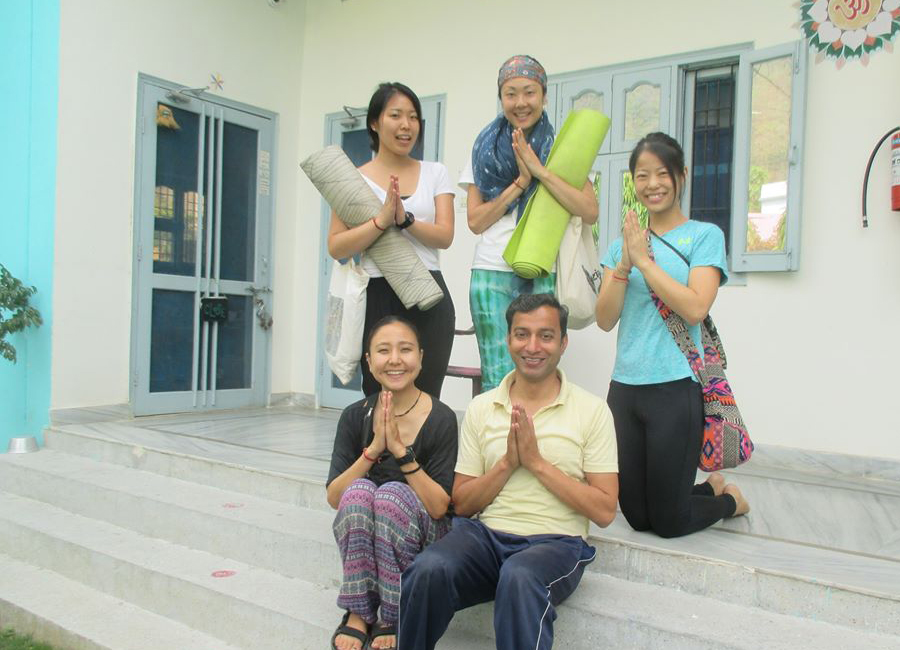
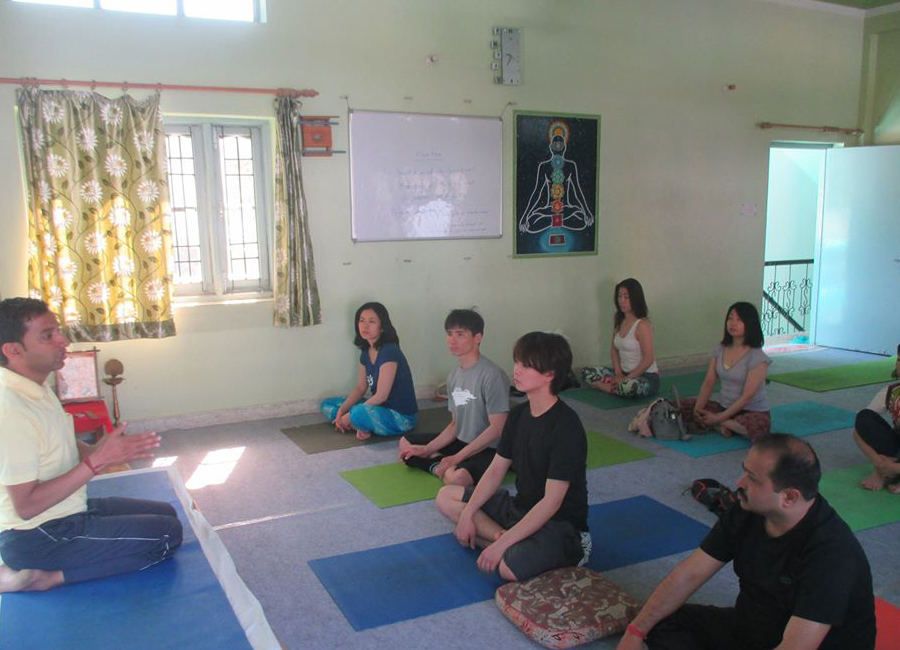
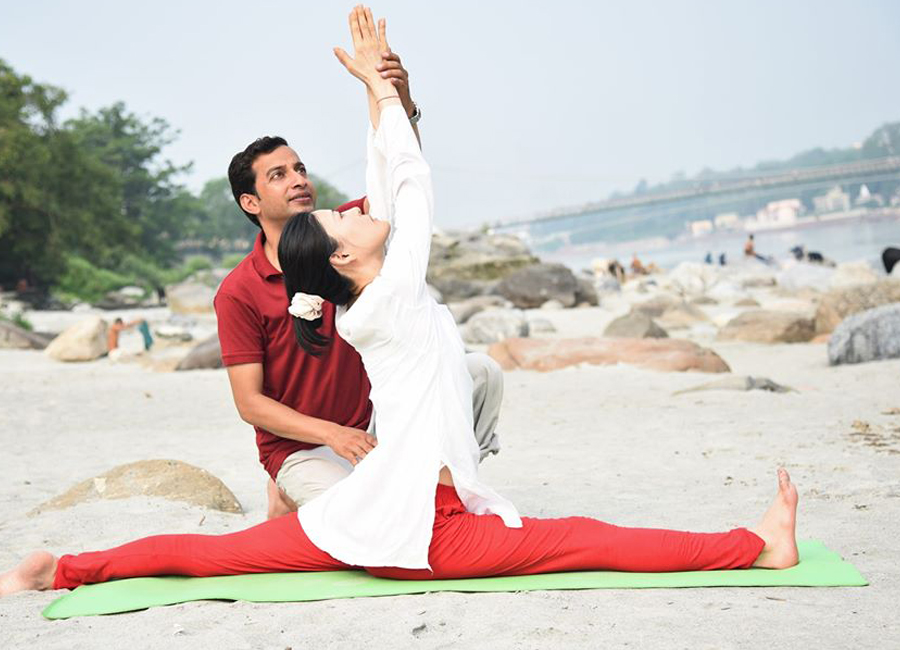
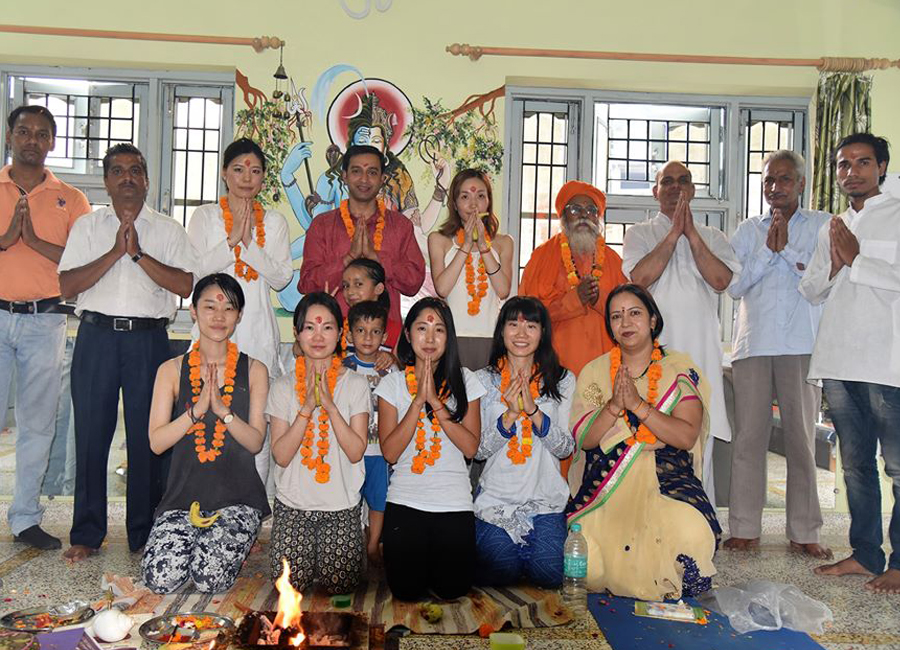
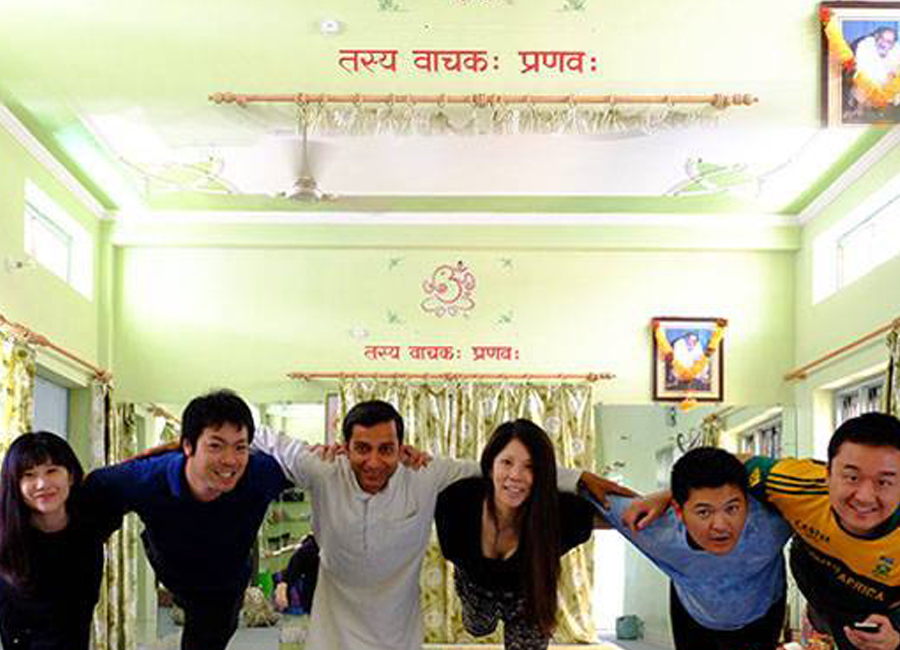
Program
Yoga is a treasure for gaining good health, prosperity, and peace. Yoga Teacher Training course has potential to can change your life and your approach towards life. It is an intensive course to study and practice various aspects of yoga to understand it, though it is not an easy subject to understand fully in a short period of time. It is a bit challenging job to transform someone into a yoga teacher in one-month duration. With this course, you will be a better student of yoga.
Teaching requires skills, patience, compassion, and clarity of the subject. It is very important to understand yoga teaching comes with regular practice, passion for living and sharing yoga & consistent self-study. Your personal experience is your best teacher.
Yoga teacher training course not only suitable for those students who aim for the yoga teacher in the near future but it’s equally beneficial for those students who want to know more about yoga beyond yoga postures.
Food & Accommodation
Yoga is a treasure for gaining good health, prosperity, and peace. Yoga Teacher Training course has potential to can change your life and your approach towards life. It is an intensive course to study and practice various aspects of yoga to understand it, though it is not an easy subject to understand fully in a short period of time. It is a bit challenging job to transform someone into a yoga teacher in one-month duration. With this course, you will be a better student of yoga.
Teaching requires skills, patience, compassion, and clarity of the subject. It is very important to understand yoga teaching comes with regular practice, passion for living and sharing yoga & consistent self-study. Your personal experience is your best teacher.
Yoga teacher training course not only suitable for those students who aim for the yoga teacher in the near future but it’s equally beneficial for those students who want to know more about yoga beyond yoga postures.
Syllabus
Part One – Theoretical: –
The theoretical portion of yoga teacher training will cover various topic related to yoga and its practices. Our aim with this is to provide a comprehensive knowledge of yoga to our valued yoga participants.
Philosophy
Yoga is a practical science to unwind our spiritual energies. Without the proper support of yogic philosophy, it’s merely a physical exercise to satisfy our physical needs. During this 200 hours teacher training course in Rishikesh India, Participants will study the following topics.
- History and philosophy of yoga
- Meaning, definitions of yoga as per various ancient scriptures goal and objectives of yoga, various branches of yoga, etc.
- A brief discussion on various Indian yogis and their role in spreading the message of yoga to a western world such as Swami Vivekananda, Swami Sivananda, Swami Satchidananda.
- An introduction of Patanjali yoga sutra and hatha yoga pradepika:- These are two ancient scriptures and authentic source of yoga. During this course participant will study it covering following topics in an interactive way.
- What are hatha yoga and its importance in modern life?
Yogic Anatomy
The yoga perspective of anatomy is quite different from that of western anatomy. In the process of self-exploration, the ancient yogis described in detail a system of energetic being Yoga anatomy covers to follow:
- Koshas-sheaths,
- Prana-life force
- Nadis-energy channels
- Bandhas –Locks
- Chakras
- Guna
An introduction of Ayurveda and its association with yoga
- Meaning and purpose of Ayurveda.
- Pancha Mahabhuta Theory (Five Elements theory)
- Tri -dosha theory (Three-Body Humors theory)
- Sapta – that theory (Seven Body Tissues theory
Teaching Methodology
- How to teach and practice yoga and what are basic skills required for teaching yoga
- Teaching techniques and teaching methodology etc.
Anatomy and Physiology
Asanas working on the Systems
- Digestive.
- Respiratory.
- Nervous System.
- Circulatory.
- Endocrine.
- Excretory System.
- Lymphatic.
The breath
- Anatomy of the Respiratory Muscles.
- Mechanism of Respiration.
- Anatomy and Physiology of Pranayama.
Part Two – Practical
ASANA: In this practical session yoga participates will study in detail about various hatha yoga postures ranges from elementary level to advance level. And how to modify, adjust and align various poses as per the need of individuals to gain the maximum benefits of the practice.
Proper use of Sanskrit names of asana, detail explanation of asana to understand their physical, psychological and spiritual benefits as well as their Contraindications for effective practice.
Study Sun-salutations and its variations
asana - pranayama
LIST OF ASANA
MEDITATIVE ASANA
- Sukhasana (comfortable crossed leg position)
- Siddhasana (The accomplished pose)
- Vajrasana (sitting on the heels pose)
- Ardha padmasana (half lotus pose)
- Padmasana (lotus pose)
RELAXATATION ASANA
- Shavasana (Corpse pose)
- Makarasana (Crocodile pose)
CULTURAL ASANA SUPINE
- Pawanmuktasana
- Setu bandasana (bridge pose)
- Simplified Matsyasana (fish pose )
- Matsyasana (fish pose )
- Jathara parivartanasan (Supported spinal twist) and its variations
- Chakrasana
- Halasana (plough pose )
- Sarvangasana
RONE LINE POSE
- Bhujangasana (cobra pose )
- Sarpasana(snake pose)
- Shalabhasana (locust pose half and full)
- Dhanurasana (bow pose)
- Chaturangasana ( four limbed stuff pose)
- Urdhva mukha Svanasana (Upward facing dog)[/read]
SITTING
- Dandasana
- Janushirasana
- Parivrtta Janushirasana
- Ek pada rajkapotasana (
- pigeon pose )
- Marichyasana one
- Hanumanasana (Monkey pose )
- Ustraasana (Camel pose)
- Marjaryasana(cat pose )
- Balasana (Child pose )
- Shimasana (lion pose)
- Gomukhasana (cow face pose)
- Ardha Matsyendrasana
- Paschimottnaasana
- Marichyasana
- Nokasana(boat pose)
STANDING
- Tadasana
- Triyak tadasana
- Ardha uttanasana
- Uttanasana
- Vrkasana
- Utkatasana chair pose
- Trikonasana (triangle pose)
- Padungastana
- Parivarti Trikonasana
- Parsvaknasana
- Parivarti parsvakonasana
- Virbhadrasana one
BALANCING ASANA
- Bakasana
- Sirsana (head stand)
- Natrajansana
- Garudasana
- Virbhadrasana three
- Ardha Chandrasana
- Vasisthasana side plank
- Sarvangasana
MUDRA
- Viparitakarni
BANDHA
- Uddiyana
- Jalandhara
- Mool Bandha
KERYA
- Neti (Nasal cleansing)
- Kunjal Kriya (abdominal cleansing),
- Tratak (Psychic purification),
- Nauli (churning of abdominal muscles)
- Study of Sun-salutations and its variations
Pranayama: In this breathing regulation session yoga participants will study various pranayama as mention in hatha yoga pradepika. With scientific approach. How to use pranayama safe and secure way to maximize its health benefits as well as certain contraindications required to be keep in mind while practicing pranayama.
- Chandra Bhedi
- Nadi Shodhan
- Bhastrika
- Bhramari
- Ujjayi
- Sheetali
- Seetkari
Meditation Sessions: It is one of the biggest challenges we face as a yoga practitioner that how to withdraw the senses from external world and divert them towards the internal world and peace. During this course our expert we will share various tools and practices prescribed in ancient scriptures to limit modifications of mind-stuff. This will help participants to understand meditation and to find suitable meditation practice for them. Practices will include.
- Mantra meditation guided or by self
- Body awareness
- Breath observation
- Yog Nidra ,Trataka
Shatkarma Yogic Cleansing: It is one of the important step towards learning yoga as yoga is about purity. Yogic shatkarma practices helps in detoxification.in this session participants will learn safe techniques, demonstration, practice, applications benefits and contraindications. Of following yogic cleansing practices under expert supervision
- Neti (Nasal cleansing)
- Kunjal Kriya (abdominal cleansing),
- Tratak (Psychic purification),
- Nauli (Churni of abdominal muscles)
Mantra Sessions: Mantra is the special arrangements of Sanskrit alphabet when pronounced clearly produces a Special kind of sounds/energy. These sounds are called a mantra. It may have meaning or may not have any meaning. By continuous recitations of that sound creates a certain kind of energy field around us Mantra can be a tool for healing and protection .in our life. In many spiritual traditions manta chants are used to concentration and meditation.in mantra chant session we guide the student step by step to pronounce various Sanskrit mantra correctly and also their meaning and purpose.
Part Three – Exam: This is the third and final section of your 200 hours teacher training program. To be honest yoga is very vast diverse subject and it is very difficult to understand fully in short period of time . This section is not about to check your yoga skill but it is about to give you a platform for learning and sharing yoga
In this section, you will be asked.
- Oral /written to express your own thoughts and understanding on yoga and its various practices.
- Conduct small asana and pranayama session to share your skills of teaching yoga with fellow participants under supervision of an experienced teacher.
- Reciting of selected mantra and sutra.
This will help you to boost your self-confidence, refine your teaching skills as a yoga instructor and develop spiritual awareness.
Learning Objectives
- Learn to teach a series of asana safe and effective way with full integrity.
- Understand various asana on pranic, physical, and therapeutically level.
- Understand the principles of alignment and adjustment.
- How to teach a wide range of mixed abilities and ranges of capacities. through various modifications and props.
- Understand the roots of yoga philosophy.
- Improve your personal practices.
- Understanding your strength and limitation.
- Understanding the significance of mantra and how to incorporate it in your practice as well as in your teaching.
- How to meditate /experiencing inner silence.
Daily Schedule
6:30 am to 7:30 am - Pranayama and meditation(Saturday morning yoga cleaning)
8:00 am to 9:30 am - Yoga asana
9:45 am to 10:45 am - Breakfast
11:00 am to 12:00 noon - Philosophy
12:00 noon to 1:00 pm - Ayurveda Anatomy & Physiology
1:15 pm to 2:30 pm - Lunch
2:30 pm to 3:30 pm - Rest
3:30 pm to 4:30 pm - Sanskrit Mantra/yoga Nidra/alignment/teaching methodology
4:30 pm - Herbal tea
5:00 pm to 6:30 pm - Evening yoga Practice
6:30 pm to 7:15 pm - Mantra chanting /meditation
7:30 pm - Dinner
Once a week in the morning time we practice yogic cleansing session under expert teacher supervision.
What’s Not Included
- 200 hours of yoga alliance certification after completing the course.
- Neat and clean accommodation With a hot shower and wi-fi facility
- Study material and yoga kit.
- Three Indian vegetarian meal per day
- Herbal tea
- One Ayurvedic complimentary massage 50 minutes or Ayurvedic doctor consultation
- Visiting Ganga aarti and cave /temple visit
- Two days (SUNDAYS ) for shopping in Rishikesh market yourself.
- One cooking class for yogic food.
- One musical night /live music/kirtan evening
What’s Not Included
- Airfare
- Personal Expenses
How to Get There
By Air
Nearest domestic airport is jolly Grant at Dehradun, which is approximately 35 kilometers away from main Rishikesh city. There are regular flights from New Delhi and other major cities of India.
By Bus
It is very well connected by bus network & you can find buses for New Delhi (ISBT) to Rishikesh on regular interval. Approximately it took 7 to 8 hours from new Delhi to Rishikesh city but some time due to road condition, traffic and other issues it took longer than usual.
By Train
The nearest major railway station is Haridwar railway station which is connected by some of major cities such as new Delhi, Varanasi, Kolkata, Mumbai etc.
Haridwar is approximately 25 kilometer far from Rishikesh and you can find buses and taxi for Rishikesh.
Once you arrived at Rishikesh bus station, look for an auto rickshaw / tuk tuk to take you Tapovan auto stand. An auto ride will cost around 40 Indian rupee shared one and 250 for private from Bus station to Tapovan auto stand( please fix price before riding and do some bargaining) Night time there charges are higher (From Tapovan auto stand our yoga school is just 250 meters away).
For your convenience we can arrange paid taxi service for you to pick up from new Delhi arport / Dehradun airport / Haridwar railway station / Rishikesh bus station.
Cancellation Policy
The reservation requires a payment of 20% of the total price.
- If the booking is cancelled one month (31 Days) prior to the start of the retreat/course you will get 90% refund of the booking amount.
- If the booking is cancelled 30 to 15 Days prior to the start of retreat/course, you will get 50% refund of the booking amount.
- No refund will be given if the retreat/course booking is cancelled less than 15 days prior to the start of the course. Although we can adjust the 50% of your paid amount to any other retreat/course you book with us in future.
The remaining amount shall be paid on arrival to the course/retreat location.
Teachers & Staff
Organizer

.png)
